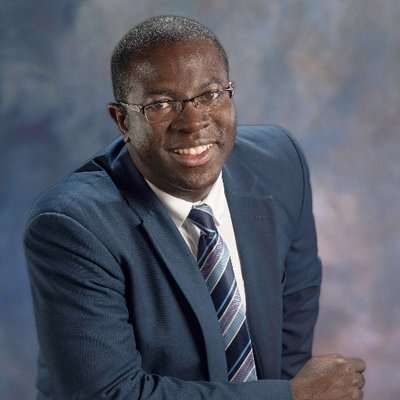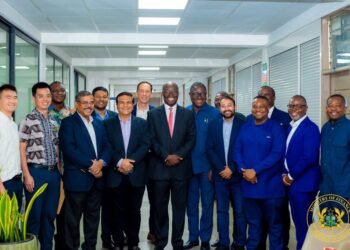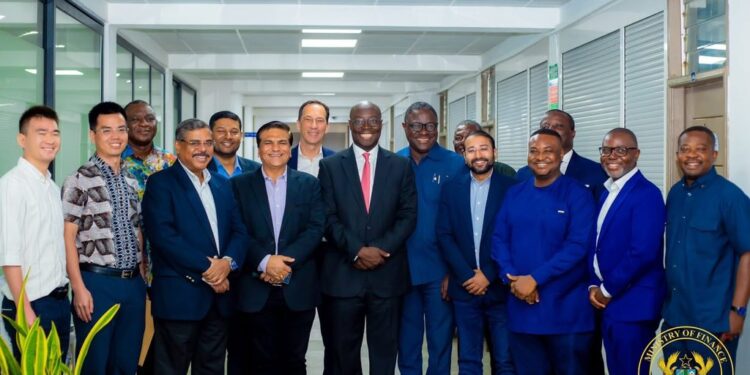Professor Baffour Agyemang Duah, CEO of the John Agyekum Kuffuor Foundation and a former Senior Governance Advisor at the United Nations, has expressed concern over the declining state of Ghana’s democracy, as reflected in the latest Afrobarometer report.
Professor Duah noted that the current decline in Ghana’s democracy is not unexpected, given the broader trend of democratic backsliding across Africa.
He attributed this decline to the poor performance of democratic governments on the continent, leading to widespread dissatisfaction and erosion of trust.
“On the whole, democracy seems not to be impressing the citizens. It is a worldwide trend as we speak American Scholars and political scientists are all doubting the survival of democracy”
“I think certainly that there is something fundamentally wrong with our [Ghana’s] practice of democracy and the human agency that is supposed to operationalize the practice seems to have been failing the people”.
Professor Baffour Agyemang Duah
According to Professor Duah, a closer examination of the country’s leadership and political landscape reveals that Ghana’s democratic system is plagued by challenges.
He suggested that the type of democracy the country has adopted is not yielding the desired results and that a critical evaluation of its democratic practices is warranted.
Meanwhile, Dr. Yaw Perbi, CEO of the HuD Group, also expressed concern that Ghana’s electoral process has degenerated into a “moneytocracy”, posing a significant threat to the health and integrity of the country’s democracy.

He noted that Ghanaians’ perception of democracy is not only declining but also that democracy itself, as a system of government, has failed to deliver the expected benefits.
Dr. Perbi stated that the democratic process has been marred by challenges, causing citizens to doubt that the electoral process can yield leaders who possess the requisite competence to move the nation forward.
“Because they know how the people got the vote. They know that the votes were bought. So right on from the onset, the process itself is flawed. If you have a process fraught with issues, you know that the end result is not going to be satisfactory either”.
“And of course, there is also the perception that the numbers are somehow cooked. So if you look at the conversations going on between the political parties and the EC right now, there is a lot of back and forth”.
Dr. Yaw Perbi
He indicated that Ghanaians perceive that their votes do not yield the desired outcomes, as they believe the system is rigged and elections are often bought.
Expert Warns Of Constitutional Threat
Furthermore, Prof. Kofi Abotsi, Dean of the Law School at the University of Professional Studies, indicated that Ghana’s Constitution may be in jeopardy due to the growing perception among Ghanaians that a failed democracy is an incentive for military rule.
He noted that Ghana may be at risk of military rule because the military may perceive an opportunity to intervene.

He noted, however, that Ghanaians must recall their past experiences with military rule, which have yielded no positive results.
“Military rules have always at best been palliative to problems, they come with the pretention to solve a problem but they are never able to solve them. The four episodes of military rules in the past testify to this.”
Prof. Kofi Abotsi
He pointed out that military rule is always absolute, as the military’s past experiences have shown that they are not suited for partial or limited involvement in governance.
Prof. Abotsi emphasized that although citizens’ frustration with democracy is justified, military intervention is not a viable solution.
He pointed out that the introduction of democracy in Ghana was intended to give citizens a voice through representative governance, thereby creating an agency relationship between the people and their representatives.
“That agency relationship states that the principal is the people of Ghana and the agent is the government. What we have had is that the relationship and the link between the principal and the agent has been broken… because the principal tends to act in its own interest and sometimes at its own behest”.
Prof. Kofi Abotsi
He further deplored the practice of governments prioritizing their political parties’ interests when governing the country, emphasizing that it undermines the Constitution.
READ ALSO: Starmer Under Pressure As NHS Concerns Surge





















